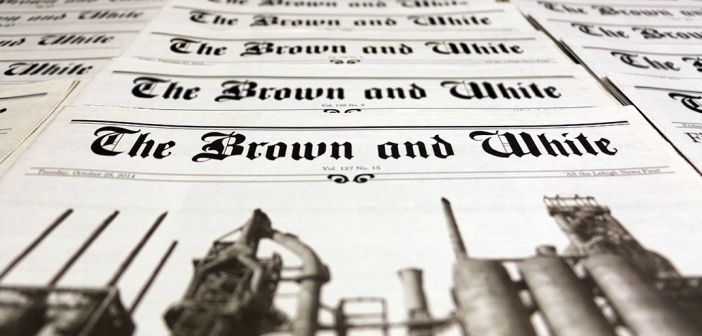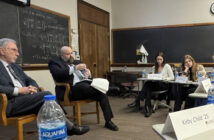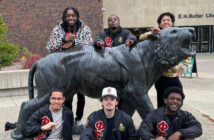The film, “Am I: Too African to be American or Too American to be African?” looks at females like Jalloh-Heyward to show the audience how these women often find they must “perform” a given race or ethnicity, and how that is influenced by the larger context of society.
One of the film’s subjects, Mariama Jalloh-Heyward — a director in the advisory group at KPMG and founder of The Green White and Blue Ball annual gala celebrating Sierra Leone’s independence — lives the life of a chameleon. Growing up bi-culturally, she often feels a strong need to switch quickly between her two cultures and to be able to adapt to both ends of the cultural spectrum.
“When I do go to a client’s site, and it’s the first time I’m meeting the client, I do make sure that I am European-looking as best as possible,” Jalloh-Heyward said.
It becomes a matter of, “Are you African, or are you American? Which culture do you identify with?”
In her film, graduate student Nadia Marie Sasso explores the identity formations of women who identify bi-culturally, living in America and West Africa. She explores each character’s hardship in traversing between the two competing spaces, forming one complex identity.
“There was a time and point where I could not coexist,” Sasso said.
The women in the film struggled through feelings of only “passing as African,” often being asked where they were from. Others said they often shied away from their cultural identity to avoid the hardships associated with it.
However, despite these hardships, both the women and their families worked to assure that they never strayed too far away from their African culture.
Sasso, whose parents emigrated from Sierra Leone, grew up exploring what it means to be both African and American. In searching to understand which end of the cultural spectrum she identified with, she realized the difficulty of navigating between the two cultures.
As Sasso developed her characters and learned each individuals’ struggle with identity formation, it became clear that each character had been put in what seemed like an endless game of ping-pong, consistently bouncing between two cultures.
Working through a theoretical framework, Sasso aimed to find characters who would speak to various criteria of class, dating and what it meant for each of them to “fit in.”
Her journey through meeting and talking to her seven female characters taught Sasso to be unapologetic about who she is. She came away from the project with a message of understanding that identity is fluid and requires giving oneself room to grow.
“Every time I watch the film, there is a different takeaway,” Sasso said.
She wanted her audience to leave the film with the message that they should be okay with their unique identity, whatever that may be — be okay with living outside of their comfort zones and remember to ask questions and learn as much as possible from any given environment.
Her favorite thing about making the film is seeing peoples’ reactions and welcoming various criticisms.
“The personal accounts included in the movie were so interesting, and it’s amazing how well the overall ideas and theme were portrayed,” Katelyn Reiss, ’19, said.
In addition to the film, Sasso has maintained her belief in the potential for collaboration to inspire innovation. Her work uses the collaboration of various artists to create awareness about this social movement.
Sasso heads the corporate responsibility initiative at Royal Dynamite, an urban clothing brand. The company works with various countries but has a large focus in Sierra Leone because the three co-founders are from there.
“For every t-shirt we sell, we donate an educational package to a child in need,” Sasso said.
She has won the Young African Committed to Excellence Award for this work with Royal Dynamite and with issues involving the diaspora.
Through her efforts with Royal Dynamite and her film, Sasso has gathered her experiences, and those of other women, developing her own identity and working toward generating awareness for an even larger social cause.
“Whatever the struggles were,” she said, “the great thing is that that’s what makes you who you are, and everyone who has a story has to have some type of hardship or something that makes them different in order to make their story worthwhile.”






Comment policy
Comments posted to The Brown and White website are reviewed by a moderator before being approved. Incendiary speech or harassing language, including comments targeted at individuals, may be deemed unacceptable and not published. Spam and other soliciting will also be declined.
The Brown and White also reserves the right to not publish entirely anonymous comments.
1 Comment
Pingback: SOAN101E Introduction to Sociology